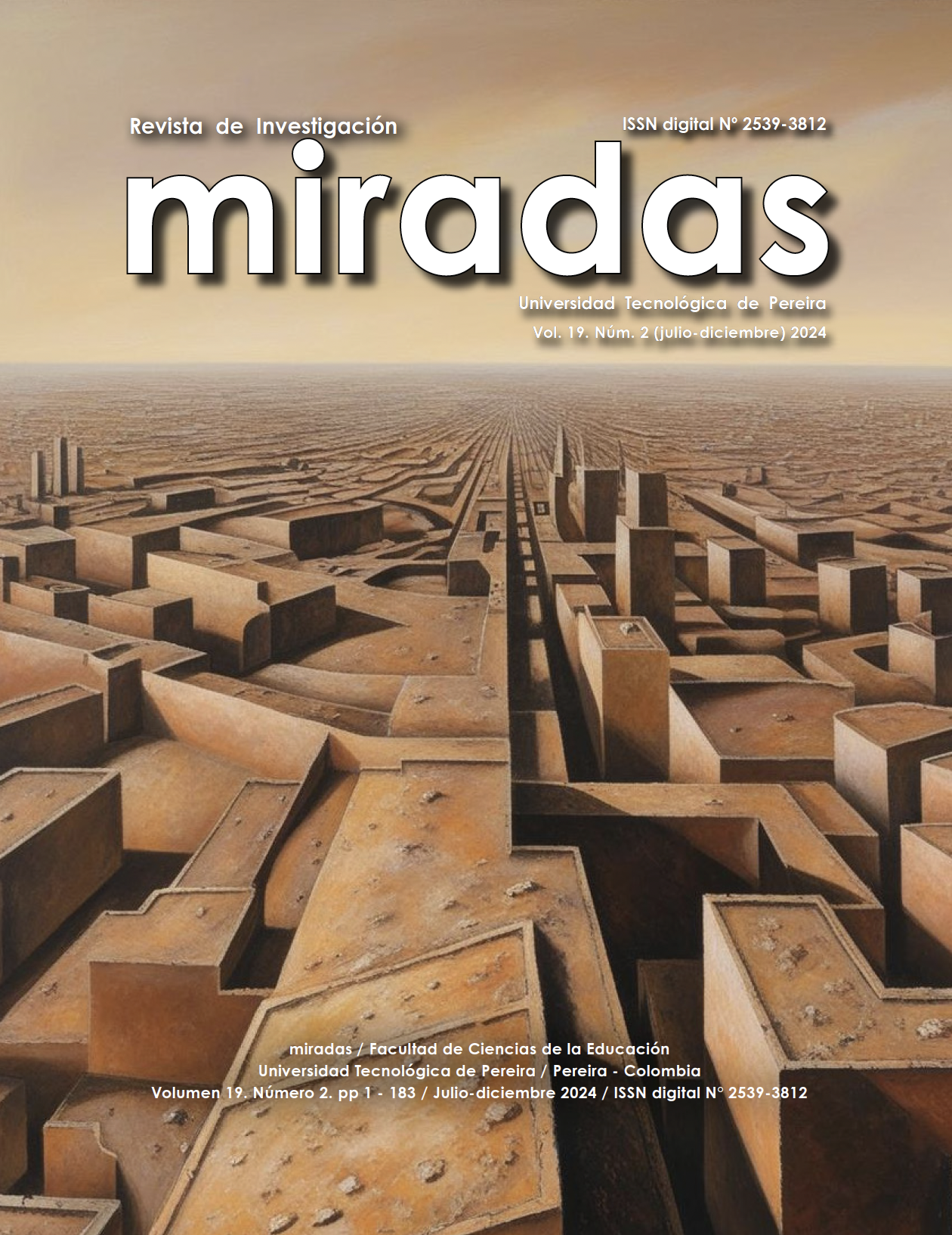State of the Art in Ubuntu Thought and Its Pedagogical Perspective
DOI:
https://doi.org/10.22517/25393812.25554Abstract
This article is the result of the research study that aimed at constructing a state of the art in Ubuntu as a philosophical, axiological, and ethical framework originating in South Africa, which expanded across the African continent and directly influenced the moral values of Black communities. Based on this context, the study’s question was formulated as follows: How does the dialogue of knowledge occur between the hegemonic forces of epistemic power and peripheral, marginalized knowledge production from a pedagogical perspective grounded in Ubuntu philosophy? To explore this question, the research contrasted the hegemonic output of Western intellectual power with knowledge production emerging from marginalized regions, seeking to highlight non-dominant contributions. The study’s epistemological approach is grounded in the historical-hermeneutic paradigm, focused on the review and interpretation of literature of the study’s central theme. Databases such as Scopus, Scielo, and selected local repositories were reviewed. Within the scope of hegemonic epistemic frameworks, this study identified a significant body of literature validated by Western intellectual power, underscoring dominant logics and practices. The review concludes that Ubuntu could offer an ethical and pedagogical alternative that addresses local realities, fostering curricula that acknowledge epistemological and cultural diversity. Ubuntu’s relevance, thus, emerges in the formation of individuals committed to respect and community harmony in contrast to the commodified and objectifying approach of Eurocentric educational visions.
Downloads
References
Baena, G. (2017). Metodología de la Investigación (3a. ed.) Editorial Patria.
Centro Nacional de Memoria Histórica. (2015). La dimensión internacional del conflicto social
y armado en colombia. injerencia de los estados unidos, contrainsurgencia y terrorismo
de estado.
Couture, É. (2011). Repensar las relaciones interculturales a partir de Bruno Latour, Boaventura
de Sousa Santos y Donna Haraway. Tinkuy. Boletín de investigación y debate 8(16), 7-25.
De Sousa, B. (2010). Refundación del Estado en América Latina. Perspectivas Refundación del
Estado en América Latina. Perspectivas. Plural Editores.
Elonga-Mboyo, J. (2019). Reimagining Ubuntu in schools: A perspective from two primary
school leaders in the Democratic Republic of Congo. Educational Management Administration
& Leadership. 47(2), 206-223. doi:10.1177/1741143217728085.
Giddens, A. (1990). The Consequences of Modernity. Polity Press - Blackwell.
Grosfoguel, Ramón. (2016). Del «Extravismo Económico» Al «Extravismo Epistémico» Y Al
«Extravismo Ontológico»: Una Forma Destructiva De Conocer, Ser Y Estar En El Mundo.
Tabula Rasa,3(24), 123-143.
Habermas, J. (1989). Der Philosophische Diskurs der Moderne. Editorial Taurus Humanidades.
Hadebe, B. (2022). Teachers’ experiences of indigenous games in the early grades. South African
Journal of, 1-7. doi:10.4102/sajce.v12i1.93
Hernández, R. (2020). Etnoeducación, Educación Propia, Interculturalidad Y Saberes Ancestrales
Afrocolombianos: Por Un Docente Investigador Articulado Comunitariamente.
Revista inclusiones, 7(10), 1-24.
Herrera, C. (2020). Pedagogia Para El Reconocimiento Y El Fortalecimiento De La Identidad
Afrocolombiana En La Infancia. [Tesis de Maestría - Universidad Distrital Francisco José
de Caldas].
Iriarte, A. (2020). Fenomenología-hermenéutica de la investigación formativa, hacia el
UBUNTU: el sentido de comunidad. Revista electrónica Entrevista académica, 5(2),
-18.
Lander, E. (2000). Ciencias sociales: saberes coloniales y eurocéntrico. En E. (. Lander, La
colonialidad del saber: eurocentrismo y ciencias sociales. Perspectivas latinoamericas.
CLACSO, Consejo Latinoamericano de Ciencias Sociales.
Letseka, M. (2014). Ubuntu and Justice as Fairness. Mediterranean Journal of Social Sciences
(9), 544-551. doi:10.5901/mjss.2014.v5n9p544
Martínez, D. (2018). El Movimiento De Los Saberes Ancestralesy Las Prácticas Pedagógicas
De Algunos Maestr@S Afrocolombianos: Historias Y Estrategias Pedagógicas Para La
Construcción De Una Sociedad Desde El Ubuntu. [Tesis de Maestría - Universidad
Pedagógica Nacional].
Mignolo, W., Quijano, A., Castro, S., Coronil, F., Dussel, E., & Escobar, A. (2000). La colonialidad
del saber: eurocentrismo y ciencias sociales. Perspectivas latinoamericanas.
CLACSO, Consejo Latinoamericano de Ciencias Sociales Editorial/Editor.
Ministerio del Interior. (2020). Cartilla para la formulación Planes De Etnodesarrollo. Comunidades
Negras, Afrocolombianas, Raizales y Palenqueras.
MolefeSource, M. (2019). Ubuntu and Development: An African Conception of Development.
Africa Today, 66(1), 96-115. Obtenido de https://www.jstor.org/stable/10.2979/
africatoday.66.1.05.
Nomalungelo, I., & Ngubane, M. (2021). Intersection of Ubuntu pedagogy and social justice:
Transforming South African higher education. Transformation in Higher Education
(10), 1-8.
Omodan, U. (2022). Deconstructing psychological implications of student unrest among university
students through Ubuntu. International Journal of Educational Research Open,
, 1-6. doi:doi.org/10.1016/j.ijedro.2022.100211
Pageau, C. (2010). Producción de saberes hegemónicos y periféricos: hacia una apertura del
horizonte epistemológico. TINKUY (12), 181-197.
Quijano, A. (2014). Colonialidad del poder y clasificación social. En B. Sousa, & M. (. Meneses,
Epistemologías del Sur. Perspectivas (págs. 67-106). Ediciones Akal.
Ramírez, A., & Sprockel, J. (2028). Los rasgos identitarios de los grupos etnicos del departamento
de la guajira y sus implicaciones en las concepciones sobre calidad educativa
[Tesis De Maestría - Universidad de la Guajira].
Reyes, D. (2019). Prácticas, saberes y ancestralidad de los pueblos afrocolombianos como aporte
a la construcción del estado nación. [Tesis de Maestría - Universidad de Cartagena].
Sabelo, N., & Wilfred, D. (2019). Using indigenous games and knowledge to decolonise the
school curriculum: Ubuntu perspectives. Perspectives in Education, 36(2), 103-118.
doi:dx.doi.org/10.18820/2519593X/piev36i2.5
Salatino, M. & López, O. (2021). Indexation Fetishism. A Latin American Critique of Science
Assessment Regimes Worldwide. Revista CTS (16)46, 73-100.
Sánchez, E. (2020). Caminos Interculturales Praxis En El Aula-Comunidad, Espacio De Enseñanza
Y Aprendizaje De Etnoeducadores. [Tesis de maestría - Universidad de la Guajira].
Thi, L. & Wall, W. (2019). Ubuntu in adult vocational education: Theoretical discussion and
implications for teaching international students. International Review of Education,
(65), 557-578. doi:doi.org/10.1007/s11159-019-09776-3
Vargas, M., Galeano, C., & Jaramillo, D. (2015). METHODOLOGY, THE STATE OF THE
ART: A RESEARCH. Revista Colombiana de Ciencias Sociales, 6(2), 423-442.
Weber, M. (2010). La ética protestante y el espíritu del capitalismo. Libros Hidalgo.
Weisz, E. (2011). Max Weber: Rationalization of the World as a Historic-Universal Process.
Reis (134), 107-124. doi:doi:10.5477/cis/reis.134.107.
Downloads
-
Vistas(Views): 263
- PDF (Español (España)) Descargas(Downloads): 212



